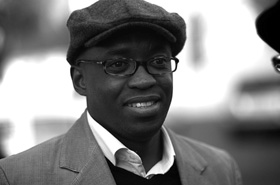Ancestral stories to be surfaced at SAHS conference

Recent conferences have seen a renewed sense of intellectual and professional commitment to historical scholarship in and about Southern Africa, with vigorous debates about the relevance of history and heritage, and of historians as public intellectuals and citizens of democratic countries. Headlined The Past and Its Possibilities: Perspectives of Southern Africa, the 23rd SAHS Biennial Conference will build on this momentum, with papers having been invited on topics ranging 'from abalone, anger and archives through to xenophobia, zombies and zymurgy'.
'The range of topics being researched by historians of Southern Africa is perhaps wider than ever before; and from the singing of revolutionary songs by politicians in the name of cultural history, to oral histories as an instrument of healing, to local histories in the service of grassroots politics and pay-to-order institutional histories, the utility of the past makes it of interest to many parties,' say the organisers. 'New technologies and globalization are also challenging us to rethink how research and publishing can be enabled. The possibilities of the past are being explored in multiple ways in the 21st century, with significant implications for historical perspectives of Southern Africa.'
The first Archival Platform panel discussion, to be chaired by Dolly Khumalo, Manager of Museum Services in the Office of the Premier, KwaZulu-Natal,will feature Verne Harris from the Nelson Mandela Foundation, Catherine Kennedy from the South African History Archive and author/columnist Xolela Mangcu, who will be grappling with the notion that 'the choices we make about what enters the archive, and what does not, determine our legacy to the next generation'. 'If archives are to play a role in deepening democracy, we need to guard against valorisation as diligently as we guard against neglect and secrecy,' reads the statement to which they have been invited to respond.
The second panel, convened around the idea of Ancestral Stories, will be chaired by the Archival Platform's Mbongiseni Buthelezi, and will feature Archive and Public Culture's NRF Chair Carolyn Hamilton, Uma Mesthrie from the University of the Western Cape and Yale University's Jacob Dlamini. One of the keynote speakers at the conference (alongside Antoinette Burton of the University of Illinois at Urbana-Champaign), Dlamini is the award winning author of Native Nostalgia (2009), a columnist and a PhD student in History.
In an opinion piece posted on the Archival Platform website in October 2011, Sean Field wrote:
'For several years it has been seemingly "inappropriate" for progressive or radical historians, memory and heritage professionals to do "family history" research. Why is it the case that our recent intellectual heritage has silenced or ignored such a fundamental sphere of human history? What are we avoiding? Do we fear that we might offend our parents and ancestors? And in 2010, what might serve to make doing 'family history' research more acceptable?'
This comment has provoked wide ranging and heated debate, touching on issues of history, memory and the relative values of oral sources and documentary records. 'The Archival Platform would like to take the opportunity to engage in a similar way with delegates to the SAHS conference,' said AP director, Jo-Anne Duggan.